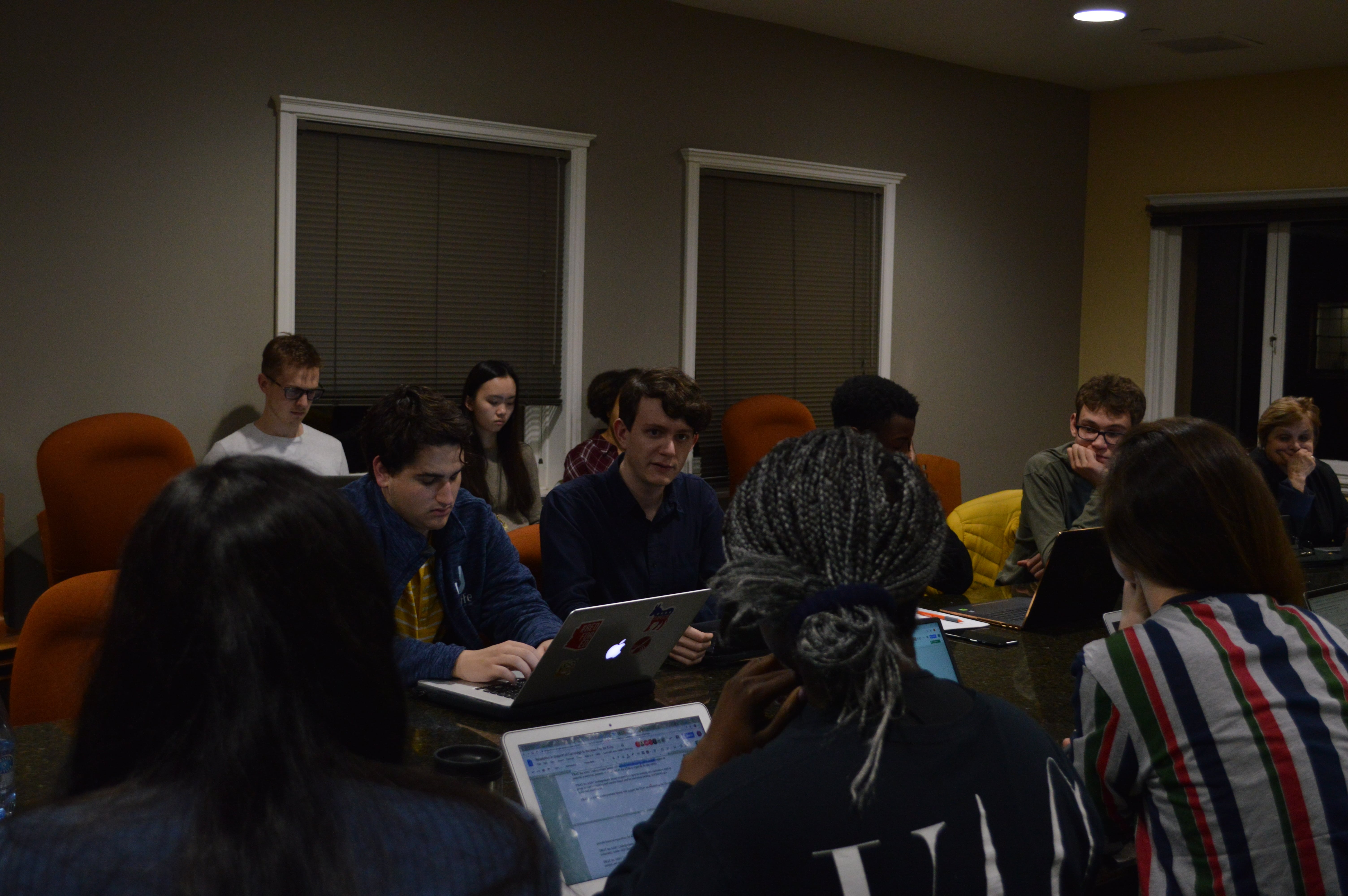A former senator plans to appeal to the Associated Students of Stanford University (ASSU) Constitutional Council after the Election Commission rejected his filing for a second Undergraduate Senate term. The Commission’s decision revolves around Khaled Aounallah’s ’19 status next year as a coterminal student and the Constitutional requirement that a candidate “be committed to be a member … of the constituency s/he represents during her/his term of office.”
According to Aounallah — whose executive slate lost to Shanta Katipamula ’19 and Ph.D. candidate Rosie Nelson in last year’s election — the Election Commission originally emailed him to inquire about his filing for both Undergraduate Senate and Graduate Student Council (GSC). When Aounallah asked if students who qualified for both legislative bodies could run for both positions, the Commission replied that, since he would be a graduate student next year, Aounallah did not qualify for Senate.
“I know it get’s [sic] tricky for coterms,” wrote Elections Commissioner Jacob Randolph ’19 in an email to Aounallah, “but this status as an undergrad or grad depends on whether or not you are paying graduate or undergraduate tuition during spring quarter.”
Aounallah believes, however, that the conferment of both his undergraduate and graduate degree in spring of 2020 means that he will maintain both undergraduate and graduate status next year. Additionally, he claims that he will remain under both billing groups as a coterminal student.
“I will not be conferring my undergraduate degree before spring of 2020, and will maintain full-time enrollment both as a graduate and an undergraduate student,” Aounallah wrote to the Commission. “I don’t see how this makes me a non-member of the undergraduate constituency during my term.”
Aounallah told The Daily he wanted to run for both GSC and Senate because he believes a coterminal student represents both graduates and undergraduates.
“Holding status as both an undergraduate and graduate brings both perspectives to the table,” Aounallah said. “I thought about running for both bodies and hopefully getting both positions — that would be a good way to like bridge the gap between the graduate and undergraduate communities.”
According to the Registrar’s Office, coterminal students are moved from the undergraduate to the graduate billing group at the start of either their 13th quarter or 16th quarter, depending on whether students are completing one or two undergraduate degrees. Aounallah is currently pursuing a bachelor’s of science with honors in energy resources engineering, along with a minor in mathematics and a minor in geophysics.
While no clause designates the eligibility of candidates based on billing group, Appendix 1, Section 1(b) of the ASSU Constitution specifies that coterminal students shall only be charged the ASSU Undergraduate Fee if they pay undergraduate tuition. Article IV, Section 3(a) of the Undergraduate Senate Bylaws states that in the context of elections, “Undergraduate Coterminal students shall be assumed to be Seniors.” Furthermore, Article V, Section 2(a) of the ASSU Joint Bylaws grants the Elections Commission authority to use “independent judgment” in determining the eligibility of candidates.
“Given the authority of the Commission to exercise its independent judgment in determining the eligibility of the candidiate [sic], as enumerated in Article V, Section 2(a) of the Joint Bylaws, the decision to not accept your filing for Senate stands,” Randolph wrote in another email to Aounallah. “This does not mean that you cannot appeal this decision.”
On Tuesday evening, the 20th Undergraduate Senate briefly discussed Aounallah’s case during its 23rd meeting of the year, postponing a decision until more information is gathered. Article V, Section 2(a) of the ASSU Joint Bylaws — the same section that grants the Commission the authority to use “independent judgment” — also allows “relevant Association legislative bodies” to overrule the Commission’s decisions with a two-thirds majority.
“I recognize the constraints that the Elections Commission is under, especially with the rollout of a new petitioning system, but I’m disappointed to hear that rules regarding coterms allegedly hadn’t been ironed out before the petition process began,” Senator Gabe Rosen ’19 told The Daily. “The Senate has already expressed interest in Khaled’s situation, and we look forward to the commission addressing his concerns as soon as possible, especially seeing as they touch on the important issue of ballot access.”
According to the Elections Commission, the Senate will discuss Aounallah’s situation at its meeting next week, but the Commission declined to comment further.
While Aounallah contests the Commission’s decision, he requested his name to remain on the petitioning survey, which closes on Friday at 11:59 p.m. However, his name is not currently listed on the live results page and was taken down from the Undergraduate Senate section of the filing site. That said, Aounallah remains a GSC candidate in the Earth Sciences District.
“I was very surprised because [the Commission] actually took down my name from the petition links, so, like, people cannot even sign my petition now,” Aounallah said. “It puts me at a disadvantage because, by the time I get to appeal the decision and everything, probably the petitioning process will be done, because it’s only a week long.”
Constitutional Council chair Jayaram Ravi ’19 told The Daily in an email that the Council has not received an official appeal from Aounallah.
Contact Patrick Monreal at pmonreal ‘at’ stanford.edu.
